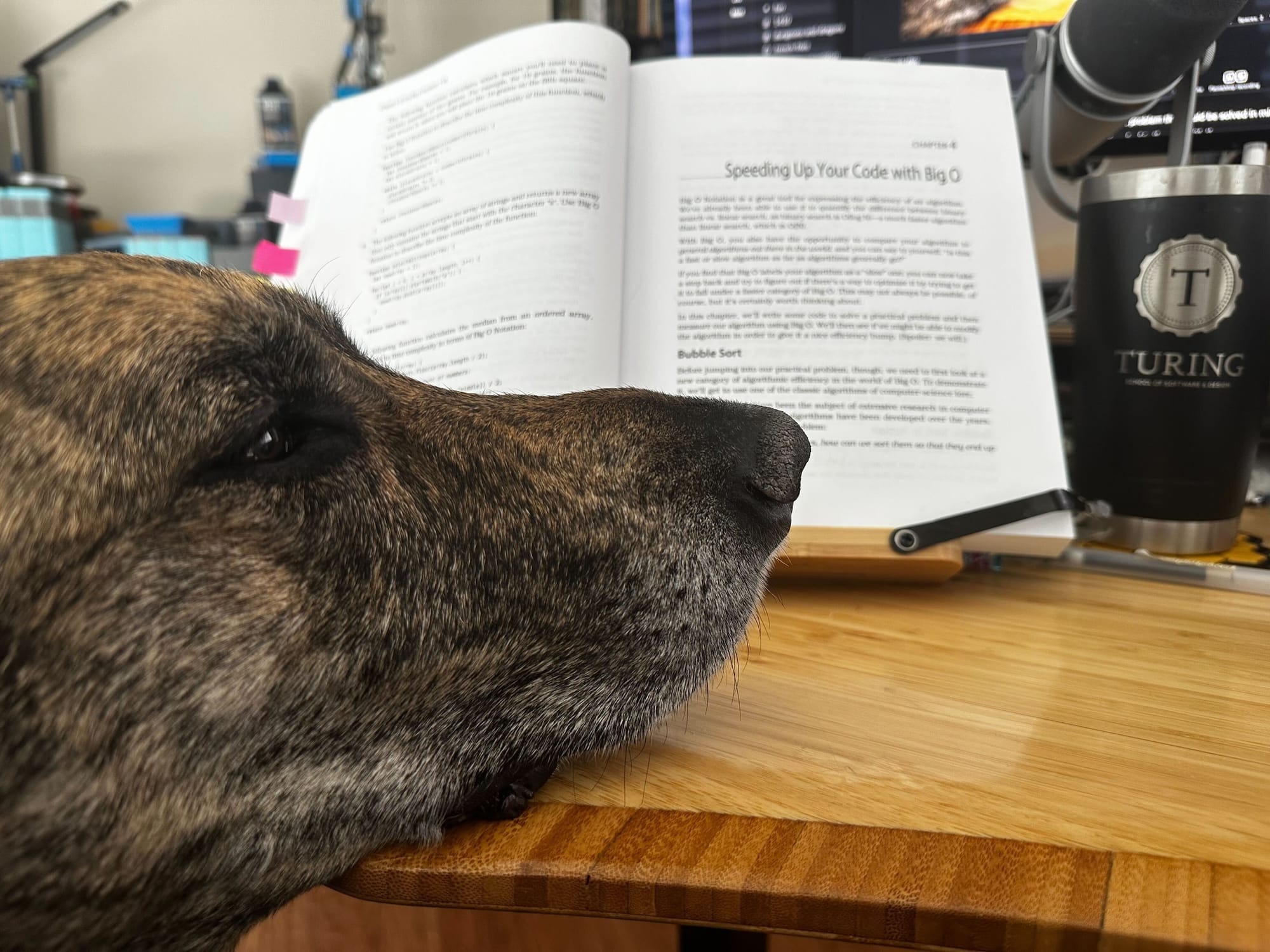Why You Should Ask Questions: A Treat for Everyone

By Athena, Canine Teaching Assistant at the Turing School of Software and Design
Hello! Athena here, your four-legged teaching assistant and professional classroom napper. You might know me as “that cute dog who sits on the couch and watches everything from class” or “the reason your instructor bribes you to ask questions.” Today I’d like to woof a little bit about why asking questions isn’t just good for me, (though let’s be honest, treats are very good for me) but actually essential for your coding journey.
The Treat Economy: How It Works
Let me explain how this ingenious system works: You ask questions, and my human gives me treats. It’s as simple as that. But here’s what I don't understand - why aren’t you asking more questions? I’ve been watching you humans stare at your screens with that furrowed brow look - the same one I get when I can’t figure out where the squirrel went - yet your paws remain firmly down.
Do you not understand that there is a direct correlation between your raised hand and the delicious piece of food that finds its way to my mouth?
What I Have Observed from My Couch
And let me be clear, it is my couch. I’ve noticed something fascinating. The students who bark up the questions tend to be the ones who eventually stop running around in circles chasing their tail during projects.
When you don’t ask questions I see you:
- Spending hours running around in circles on a problem that could be solved in minutes.
- Looking at Stack Overflow with your head cocked to the side with the same expression I give my empty food bowl. (I call my problem a Snack Underflow.)
- Trying the same incorrect code repeatedly (which is strange because even I, a dog, know that’s not how you get different results.

News From the Pack: You’re Not Alone
A secret tip for you from the animal kingdom: when one wolf howls, the whole pack benefits. When you ask a question, you’re not the only one getting an answer, everyone does. I’ve seen my human explain something to one student and seen the lightbulb moments ripple across the Zoom faster than I can chase someone on one of those electric scooters.
The student who seems to understand everything has questions too! They're just asking them. Ofttimes, the difference between someone who is struggling and someone who is successful isn’t intelligence - it’s curiosity.
You Should Be More Like Me
I’m naturally curious. If I smell something interesting, I’m pulling my human along to investigate. If I hear a strange noise, I tilt my head questioningly and give a sub-woof. If I’m confused about something I make eye contact and whine until I get an explanation.
Be more like me:
- If something doesn’t smell right in your code, sniff it out.
- If instructions sound strange to your years, tilt your head and ask why
- If you’re confused, don’t suffer in silence with your tail between your legs, make noise until someone helps you.
Conclusion: It’s Not Just About Treats
While the most important thing here is the treat-question economy, there’s a bigger point to be made here. Questions are how puppies learn to be dogs, and how students here at Turing learn to be developers. Each question asked is a step we take towards greater understanding.
So please, I’m begging you - ask more questions in class. Challenge concepts and seek clarification. Speak up when you are confused.
Although I certainly appreciate the treats, the real treat for me is watching you all grow from confused puppies into confident developers.
Athena can be found attending lectures, accepting pets, and providing emotional support at the Turing School of Software & Design. She specializes in nap-driven development and treat-oriented programming. The views expressed are entirely her own and any drool on your pull requests are purely coincidental.

